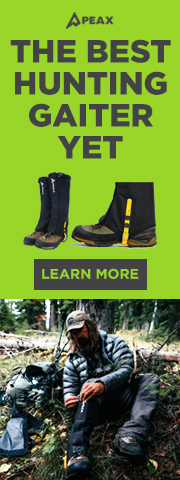The forest service in Oregon is holding meetings and looking for input in their online mapping tool to help them decide what roads they will stop maintaining in the Willamette National Forest. Here is the press release. If there is a specific area that is particularly important for you - roads that you would love to keep maintained or roads you would be glad were no longer maintained, get your input in.
Press Release:
Contact: Matt Peterson (541)225-6421
Date: September 30, 2014
FOR IMMEDIATE RELEASE
The Forest Service wants your input about long term road management strategies
The Willamette National Forest has scheduled three meetings in October to solicit ideas and
help from the public as it begins to wrestle with long-term road management decisions. The
Forest Service needs your help addressing the twin challenges of an aging road system and a
limited maintenance budget, in a landscape that regularly washes out roads and grows trees
and brush that can limit access.
Wednesday, October 29, 6:00 – 8:00 pm at the Springfield Interagency Office, 3106
Pierce Parkway, Springfield, OR.
The Willamette National Forest wants to hear from you before developing a road investment strategy,
which will guide the efficient use of the limited maintenance funding to protect roads and access to
special places that the public holds dear. Forest Service roads are important for almost every activity on
National Forests:managing fire, hiking and fishing, timber harvest, hunting, ecological restoration,
firewood, and more.
Both meetings will start with a presentation about roads management on the Willamette National
Forest and a chance for questions and answers. After the presentation, there will be maps of the on
tables, and visitors will be encouraged to draw on the maps to show areas or roads that are important
to them.
If you’re not able to attend the meeting, you can still tell us about why roads are important to you and
what areas you value. The Forest Service recently unveiled a new, innovative interactive mapping tool
that lets you draw right on the digital map, commenting about why you value an area. Anyone with an
internet connection can use the mapping tool, available at http://go.usa.gov/KqGH.
The mapping tool is easy to use, giving users options about what kinds of data (or layers) they’d like
displayed on the map, including roads, trails, recreation sites, and wilderness areas. The map also shows
other people’s comments, without names, allowing the chance for dialogue about these areas.
Press Release:
Contact: Matt Peterson (541)225-6421
Date: September 30, 2014
FOR IMMEDIATE RELEASE
The Forest Service wants your input about long term road management strategies
The Willamette National Forest has scheduled three meetings in October to solicit ideas and
help from the public as it begins to wrestle with long-term road management decisions. The
Forest Service needs your help addressing the twin challenges of an aging road system and a
limited maintenance budget, in a landscape that regularly washes out roads and grows trees
and brush that can limit access.
Wednesday, October 29, 6:00 – 8:00 pm at the Springfield Interagency Office, 3106
Pierce Parkway, Springfield, OR.
The Willamette National Forest wants to hear from you before developing a road investment strategy,
which will guide the efficient use of the limited maintenance funding to protect roads and access to
special places that the public holds dear. Forest Service roads are important for almost every activity on
National Forests:managing fire, hiking and fishing, timber harvest, hunting, ecological restoration,
firewood, and more.
Both meetings will start with a presentation about roads management on the Willamette National
Forest and a chance for questions and answers. After the presentation, there will be maps of the on
tables, and visitors will be encouraged to draw on the maps to show areas or roads that are important
to them.
If you’re not able to attend the meeting, you can still tell us about why roads are important to you and
what areas you value. The Forest Service recently unveiled a new, innovative interactive mapping tool
that lets you draw right on the digital map, commenting about why you value an area. Anyone with an
internet connection can use the mapping tool, available at http://go.usa.gov/KqGH.
The mapping tool is easy to use, giving users options about what kinds of data (or layers) they’d like
displayed on the map, including roads, trails, recreation sites, and wilderness areas. The map also shows
other people’s comments, without names, allowing the chance for dialogue about these areas.



